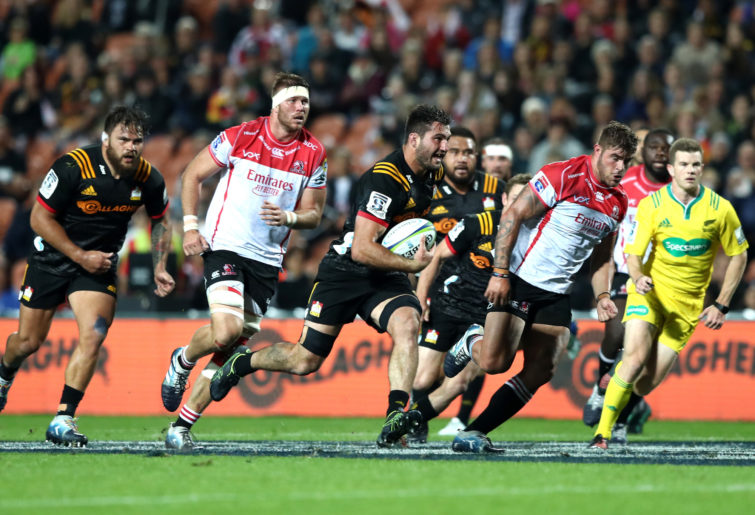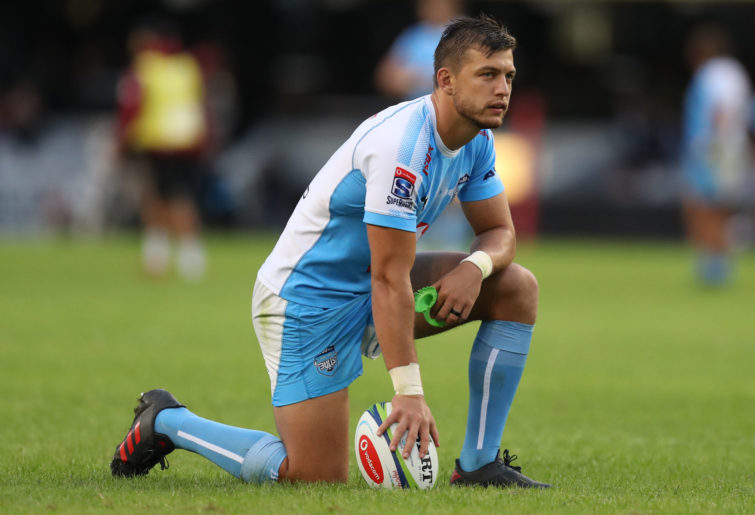A topical podcast discussion around the quality of Super Rugby on show in 2019 intrigued me in a way that I really hadn’t considered before recently, but actually made a fair bit of sense in this, a Rugby World Cup year.
It came during a welcome round of golf, listening to The Short Ball, the podcast out of RugbyPass.com, featuring New Zealand commentator Scotty Stevenson and in this particular edition, former All Blacks lock, Ali Williams.
The golf, for what it’s worth, mirrored the form of more than a few Super Rugby teams in 2019. An exceptionally good front nine was woefully let down by some poor execution after the break, punctuated by some ill-discipline, poor decision-making that led to unnecessary risks and penalties conceded, and with some ordinary finishing thrown in for good measure.
A lot of ‘what if?’ thinking was the overwhelming outcome.
Back to the pod, and the discussion kicked off after another typically mad weekend of results, and within it, what Stevenson described as some “bush league footy”.
It was a round that didn’t lack for excitement, he said, but just left a bit to be desired on the execution front, coincidently around the same time I had to mark a ‘three’ in the makeshift ‘putts’ column on my scorecard.
“I just wonder,” he continued, “if some New Zealand teams at the moment in their desire to showcase flair, athleticism, speed, have forgotten that sometimes you’ve got to get in the trenches and just win the grind?”

Luke Jacobson makes a break (Photo by Hannah Peters/Getty Images)
It was a question that Ali Williams first responded to with a thought, a question, whether Super Rugby was trying to create a new ‘Twenty20’ type of rugby where entertainment was the priority. The gap between Super Rugby and Test Rugby had never been wider, he pondered.
With game trends and coaching direction the main driver, Williams wondered whether the “respect for the game” was being eroded.
“I can’t understand how so many teams are going for the corner, to give you a fifty-fifty – maybe a 75-25 – lineout opportunity to then create a drive to then score off that,” Williams said.
“There’s three points there. You take the kick-off, you kick it down, you hound them, and there could potentially be a lineout down on the forty metre with a good exit play.
“I don’t understand the lack of… well not knowledge, but ‘respect’ of how the game was designed and played.
“I just don’t understand how these people aren’t grinding out points pressure, scrum pressure… you know, these elements that they just keep working, working, working to get reward,” the former Blues and Crusaders lock contemplated.
Both Stevenson and Williams conceded the Crusaders were unrivalled in their efficiency and general play, but proceeded to point out concerning elements within all four remaining Kiwi sides. The Highlanders, they agreed, were the team most likely and most willing to roll the sleeves up when needed, but that was far from ingrained behaviour.
“For the first time in a very long time,” Stevenson surmised from what he’d been seeing, “I thought, ‘far out’, if we take that philosophy, if these players don’t get that philosophy out of their system before the Rugby World Cup, they could be in grave danger.”
“Correct,” Williams agreed.
And though Stevenson and Williams were coming from a New Zealand perspective, their observations are valid across the teams and the conferences.
Certainly, more teams seem to be eschewing seemingly easy penalty goal attempts in favour of a lineout in close proximity to the opposition try line and the desire to find at least five points instead via their lineout drive.
Having taken a bit of a look at goal-kicking numbers in recent weeks, it’s quite astounding to see just how rarely some teams have pointed to the posts this season.
After twelve rounds, the Highlanders and Hurricanes have ‘kicked for poles’ just thirteen times. The Rebels have had only eleven attempts, and the Lions ten. Of these four, only the Lions through Elton Jantjies (73 per cent) have goal-kickers with success rates below three in every four attempts.
Bryce Hegarty is the leading Australian goal-kicker by some margin – 28 from 32, for 88 per cent – and has kicked all eight penalty attempts. But with Hamish Stewart’s one successful attempt, the Reds are still only on 9/9 for the year.
The Crusaders as a team are five from seven penalty attempts in eleven games, and quite remarkably, Christian Lealiifano’s penalty on halftime in Buenos Aires last weekend was just his and the Brumbies third penalty attempt (all successful) all season.
Curwin Bosch had four penalty attempts before halftime alone in Christchurch on Friday night, and his seven from nine comprised the Sharks entire 21-point haul for the match.
At the other end of the scale, the Bulls have taken 36 penalty attempts and Handre Pollard kicking 27 from 30 of them, and the Stormers have taken 33 attempts. The Sharks (26), Blues, Jaguares, and Sunwolves have all taken at least 21 penalty attempts.

Handre Pollard (Photo by Steve Haag/Gallo Images/Getty Images)
I’d love to have the time and computational power to work out the success rates of teams kicking for the corner rather than the posts, and to compare the effort required in finding the try line – or not – compared to the chance for a team to take a minute while a kicker takes the three-point penalty attempt.
It would be intriguing to know why some teams clearly believe the lineout drive is a better option.
Especially when you consider defences in 2019. Only the currently 14th-placed Chiefs and 15th-placed Sunwolves are conceding more than four tries per game. Six teams are conceding fewer than three tries per game.
And only the Crusaders are scoring more than four tries per game in 2019, while another six aren’t crossing the line more than three times a game.
So why are we seeing so few penalty attempts from nearly half the competition? And what impact could this have come the international season?
I don’t have the answer, but it’s a question worth pondering. We have interestingly enough seen teams forced in to grinding, defence-led wins in recent weeks, yet many of those same teams are making life difficult for themselves by ignoring not just kickable penalties, but sometimes dead-set sitters.
In a season where eleven teams are still within a two-win margin on the competition table, it seems this season more than most would be one where pragmatism toward easy points on offer would be a sensible plan.






























































































